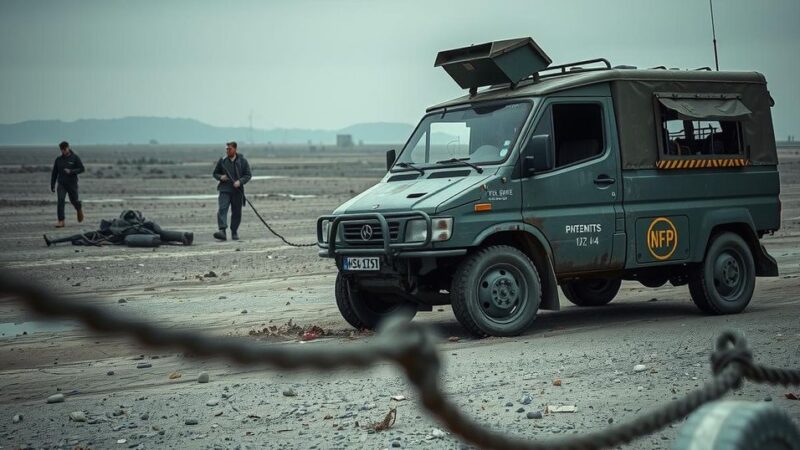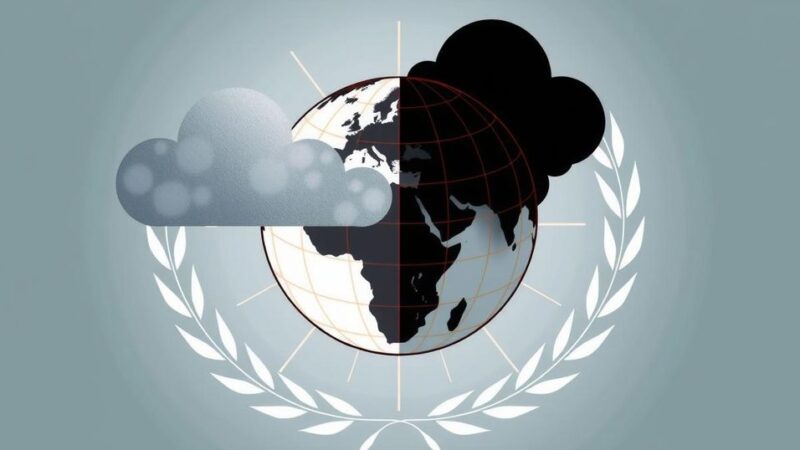Iranian President Masoud Pezeshkian’s visit to Tajikistan on Thursday aims to strengthen diplomatic ties strained since the 1990s civil war. Pezeshkian expressed his affinity for Tajikistan, emphasizing cultural ties. He plans to sign a strategic partnership with Russia afterward, amidst regional geopolitical shifts involving neighboring powers.
Iranian President Masoud Pezeshkian visited Tajikistan on Thursday, marking a significant step towards mending the relationship between Tehran and Dushanbe, which has been marked by tension since the Tajik civil war in the 1990s. During his visit, Pezeshkian expressed a deep connection to Tajikistan, stating, “I feel like I’m in Iran. I don’t feel like that anywhere else in the world,” underscoring the cultural and linguistic ties shared between the two nations.
Iran prioritizes strengthening its presence in Central Asia, an area dominated by Russia and China, amidst growing competition from Turkey and Western nations post-Russia’s invasion of Ukraine. President Pezeshkian remarked on the potential for enhanced collaboration in sectors such as education, science, culture, politics, and security during his discussions in Dushanbe.
After his trip to Tajikistan, President Pezeshkian is set to travel to Moscow to formalize a comprehensive strategic partnership with Russian President Vladimir Putin. The importance of this visit is heightened by the fact that it could potentially reshape the dynamics of ties among regional states, especially given past accusations against Iran concerning its involvement in Tajik political affairs.
Historically, relations have been frosty, especially after Tajikistan accused Iran of supporting radical Islamist groups during the civil war. This collaboration is seen as a fresh opportunity to build a more robust relationship, a sentiment echoed by Pezeshkian, who emphasized that their cooperation could be improved across various domains. The Tajik presidency referred to Pezeshkian’s visit as a chance to “open new pages” in the history of bilateral ties, built upon their shared linguistic and cultural foundations.
Iranian-Tajik relations have been defined by cultural and linguistic similarities, yet they have faced significant challenges since the 1990s. The Tajik civil war strained these ties, particularly due to allegations against Iran regarding its support for Islamist factions within Tajikistan. Both nations share a Persian language which forms a basis for their cultural connections, but political tensions have often overshadowed these similarities. In recent years, efforts led by both nations’ leadership aim to re-establish and strengthen their rapport, recognizing Central Asia’s geopolitical significance.
The visit of Iranian President Masoud Pezeshkian to Tajikistan signifies a pivotal moment in the effort to improve bilateral relations that have struggled for decades. As both nations seek to enhance their partnership across multiple sectors, the geopolitical landscape of Central Asia continues to evolve, particularly as external influences from Russia, China, Turkey, and the West become pronounced. Pezeshkian’s engagements in Tajikistan and subsequent travels to Moscow could lead to significant shifts in regional alliances and cooperation.
Original Source: www.barrons.com







